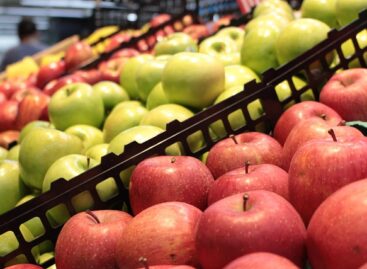Food firms plan to phase out industrially produced trans fats
Members of the International Food and Beverage Alliance (IFBA) – including Nestlé, The Coca-Cola Company and PepsiCo – will aim to phase out industrially produced trans fats from their products by 2023.
Now, they have committed to aligning their global standard with the World Health Organization’s (WHO) recommendation for a maximum industrially produced trans fats threshold in food products not exceeding 2g of industrially produced trans fats per 100g of fat or oil by 2023.
The announcement comes after WHO last year called for the elimination of artificial trans fats from the global food supply chain by 2023 in a move to combat cardiovascular disease. According to WHO, trans fat intake leads to the death of more than 500,000 people from cardiovascular disease each year.
Industrially produced trans fats are contained in hardened vegetable fats, such as margarine and ghee, and are often present in snack food, baked foods and fried foods. Manufacturers often use them as they have a longer shelf life than other fats. But the WHO stressed that healthier alternatives can be used that do not affect the taste or cost of food.
Related news
Health is decided at the family table – dietitians show the everyday application of the SMART PLATE® nutritional recommendation
🎧 Hallgasd a cikket: Lejátszás Szünet Folytatás Leállítás Nyelv: Auto…
Read more >There are no unhealthy foods, only poorly chosen quantities
🎧 Hallgasd a cikket: Lejátszás Szünet Folytatás Leállítás Nyelv: Auto…
Read more >Related news
The Store of the Future opens again at the SIRHA Budapest exhibition! (Part 1)
🎧 Hallgasd a cikket: Lejátszás Szünet Folytatás Leállítás Nyelv: Auto…
Read more >Gross from 600 thousand to 1.5 million: numbers also reduce the anxiety of career starters
🎧 Hallgasd a cikket: Lejátszás Szünet Folytatás Leállítás Nyelv: Auto…
Read more >My love is trade marketing – Proven recipes and new waves
🎧 Hallgasd a cikket: Lejátszás Szünet Folytatás Leállítás Nyelv: Auto…
Read more >








